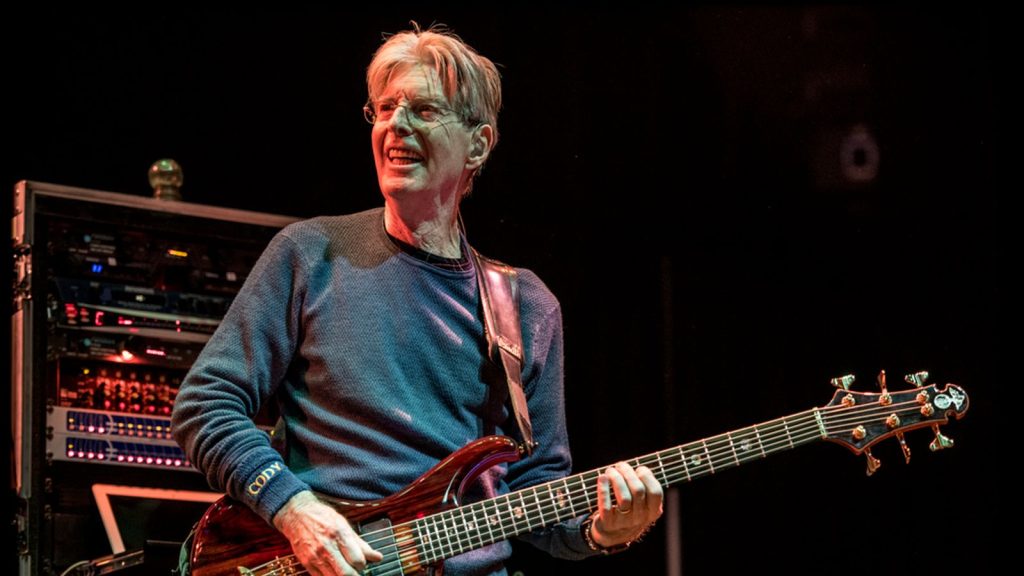Music
Remembering Phil Lesh: The Heart and Soul of the Grateful Dead
1. A Visionary Musician
Phil Lesh, the legendary bassist and co-founder of the Grateful Dead, passed away at 84, leaving behind an indelible mark on rock music. Known for his innovative bass lines and free-flowing improvisational style, Lesh helped redefine the role of the bass in modern music. He was deeply influenced by classical music and free jazz, which gave his playing a distinctive sound, and made him a revered figure in the jam band world. His musicianship and creativity anchored the Grateful Dead’s unique sound, pushing the boundaries of rock music.
Lesh’s musical journey began in the San Francisco Bay Area, where he was born in 1940. Originally trained as a violinist and later as a trumpeter, he discovered his passion for experimental and avant-garde music. Meeting Jerry Garcia in the early 1960s was the turning point that set him on the path to founding one of the most iconic bands of the 20th century. When Garcia invited him to play bass in what would become the Grateful Dead, Lesh embraced the challenge, despite having little experience with the instrument at the time. His adventurous spirit and willingness to explore new musical territories became the hallmark of his career.

2. The Grateful Dead’s Formation and Success
Lesh’s contributions to the Grateful Dead cannot be overstated. From the band’s inception in 1965 to its dissolution in 1995, he was a key member in shaping their sound and approach to music. The Dead, as they were fondly known, were not just a band—they were a movement. Their psychedelic soundscapes, extended improvisational jams, and genre-blurring songs made them one of the most influential acts in rock history. Phil Lesh played an essential role in crafting the band’s signature style, which combined rock, blues, jazz, and folk elements.
With the release of iconic albums like American Beauty and Workingman’s Dead, the Grateful Dead rose to global fame, becoming the quintessential jam band. Lesh’s unique bass work added depth and complexity to the band’s live performances, where he would often engage in extended solos and improvisational sections. The Grateful Dead’s concerts became legendary, known for their spontaneous energy and marathon-like performances, drawing in millions of dedicated fans known as Deadheads. Lesh was the quiet force driving these magical live performances, always pushing the music into new, uncharted territory.
3. Personal Struggles and Health Battles
Throughout his life, Lesh faced several personal challenges, including serious health issues. In 2006, he was diagnosed with prostate cancer but made a remarkable recovery. His battle with bladder cancer in 2015 was more difficult, yet he remained resilient, continuing to perform and create music even after his recovery. These experiences deepened Lesh’s spiritual outlook on life and music. Despite his struggles, he maintained a positive presence, focusing on the joy and healing power of music.
Lesh’s health challenges also led him to advocate for greater awareness about cancer and organ donation. He became a passionate supporter of the cause after receiving a liver transplant in 1998. His experiences reinforced his belief in the communal power of music, and he continued to perform with his band, Phil Lesh & Friends, which allowed him to explore new musical collaborations while staying true to his improvisational roots. Even in his later years, Lesh was a tireless performer, finding joy in sharing music with his audience.
4. The Legacy of Phil Lesh and the Grateful Dead
The impact of Phil Lesh and the Grateful Dead transcends the realm of music. Their pioneering spirit, communal ethos, and dedication to artistic freedom have left a lasting legacy on American culture. Lesh’s contribution to the development of live, improvisational music is immeasurable. His fearless approach to bass playing, which broke away from traditional rhythmic roles, inspired countless musicians and changed the way bass guitar is viewed in modern music. His influence extends beyond rock, touching genres as diverse as jazz, electronic, and indie music.
The Grateful Dead’s influence on live music culture remains strong, with the Dead & Company tours featuring surviving members of the band keeping their music alive for new generations. Lesh’s spirit of musical exploration lives on in these performances, as well as in the numerous tribute bands and Deadhead gatherings around the world. For Deadheads, Lesh’s passing is a significant moment in the band’s storied history, marking the end of an era while ensuring his legacy endures.
5. A Lasting Legacy of Love and Music
Phil Lesh’s passing is a profound loss, but his legacy will continue to resonate through the music he helped create and the lives he touched. As one of rock’s most beloved and inventive bass players, his contribution to the Grateful Dead and the larger music community is immeasurable. His unique approach to music, marked by its fluidity and improvisation, has inspired generations of musicians to push the boundaries of creativity. More than just a musician, Lesh was a visionary who saw music as a way to connect people and transcend the ordinary.
Phil Lesh’s love for his family, friends, and fans was always evident in his work. As he continued performing with Phil Lesh & Friends well into his 80s, he remained dedicated to sharing the joy of music with others. Even in his final days, Lesh was committed to the belief that music has the power to heal and unite, a message that will remain central to his enduring legacy. Today, as fans remember Phil Lesh, they celebrate not only his music but also the love and community he fostered through his art.
From: Doublejoydesigns
